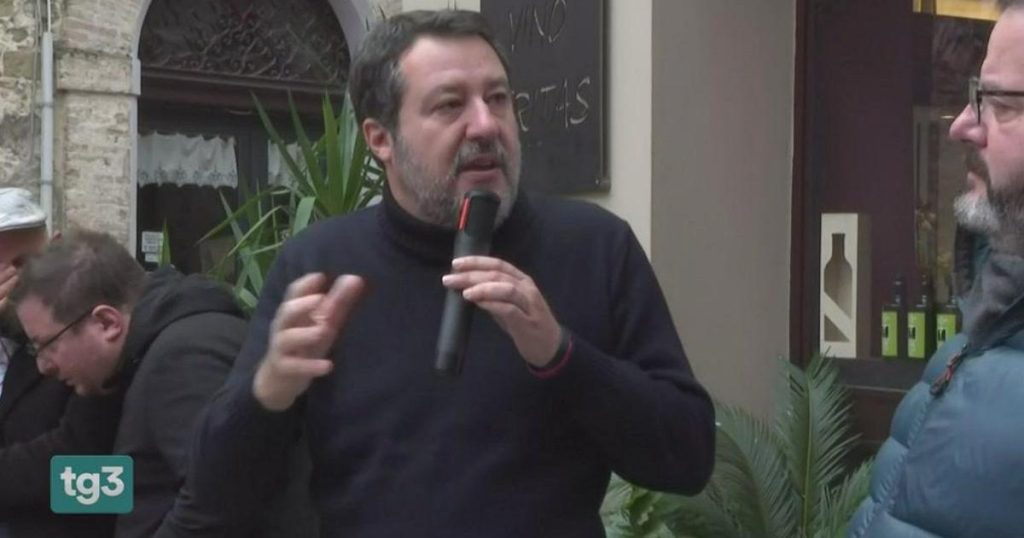A recent protest in Bologna organized by CasaPound, an extreme right-wing group, has sparked controversy and condemnation from various groups. The SILP CGIL, a police workers’ union, has strongly criticized the violence at the protest and expressed outrage at the sight of a far-right leader giving orders to law enforcement officers. The union emphasized that officers should not be treated as “cannon fodder” and called for accountability for the events that unfolded during the protest. Bologna’s mayor Lepore also condemned the presence of the group and the violence that ensued, stating that the city was sent “300 black shirts.”
The controversy surrounding the CasaPound protest has deepened as various politicians weigh in on the issue. Matteo Salvini, leader of the Lega party, called for the eviction of left-wing social centers, which he described as havens for criminals and violent individuals. Salvini’s remarks came in the context of ongoing tensions between the far right and left-wing groups in Italy, with accusations and counter-accusations flowing from both sides. Salvini’s characterization of the social centers as “red ticks” was echoed by others, who called for measures to render these groups less harmful to society.
Opposition groups have strongly criticized the decision to allow CasaPound to hold a protest in Bologna, considering it an affront to the city’s history as a center of resistance during World War II. Fratoianni of the Green and Left Alliance labeled the decision to permit the protest as a “unforgivable mistake” on the part of the government and institutions. The Five Star Movement also called for united action against the rise of authoritarianism, urging different groups to come together to oppose the far-right agenda and protect democratic values in the country.
The clashes between far-right and left-wing groups in Italy are intensifying, with tensions spilling over into the streets during protests and demonstrations. The events in Bologna have underscored the deep divisions within Italian society and the challenges facing the country as it grapples with rising extremism and political polarization. The role of law enforcement in managing these conflicts has come under scrutiny, with unions and other groups calling for officers to be protected from becoming pawns in ideological battles.
The aftermath of the CasaPound protest has left Bologna residents and leaders grappling with the implications of allowing extremist groups to march in the city. The call for accountability and transparency in handling such events has become more urgent, as public outrage grows over the violence and provocations that have marred recent protests. The need to address the root causes of extremism and division in Italian society has become a pressing concern for politicians and citizens alike, as they seek to find common ground and preserve democratic values in the face of rising extremism and political discord.


